- FOKION AVGERINOS – DR. IKE: Athletic Director, Youth Mentor, and Healer
- American Hellenic Institute’s Golden Jubilee Celebration
- Leadership 100 Concludes 33rd Annual Conference in Naples, Florida
- Louie Psihoyos latest doc-series shocks the medical community The Oscar–winning director talks to NEO
- Meet Sam Vartholomeos: Greek-American actor
Ilias Katsos: the Colossus of …Georgitsi who Built the Colossi of New York
Forgive the borrowed phrase from Henry Miller’s Greek masterpiece, The Colossus of Maroussi, but it rather fits Ilias (“Lou”) Katsos. Lou’s hometown, Georgitsi, known as the Balcony of the Taygetos, is such a place, and in New York, his other hometown, Lou would later construct the steel and glass colossi of Manhattan. Finally, like the poet Georgios Katsimballis, the hero of The Colossus of Maroussi, Lou is also an active and devoted patron of culture and Hellenism.
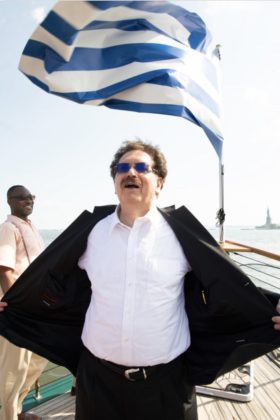
Born in Georgitsi in 1951, branches of his family were already in the United States when Lou, his mother and sister joined their father in New York in 1956. “We lived in East New York, in Brooklyn, basically in what was the ghetto at the time,” Lou recalls. From an early age, he was at work with his father, out of a pushcart in Lower Manhattan, near the Customs House. “This was all technically illegal,” Lou reminds us, “and my father paid $4000 for a spot—you could have bought a house for that then.” Eventually, the Katsos family moved to the Prospect Park section of Brooklyn and traded a pushcart for a luncheonette in Tribeca.
“Tribeca at the time was not the hip place it is now,” Lou reminds us, it was warehouses and truck drivers, all ethnicities, and volatile. “I learned a lot about dealing with people there. It could get pretty incendiary.” He also adds, “These were not Greek American experiences, but American—multicultural interactions.”
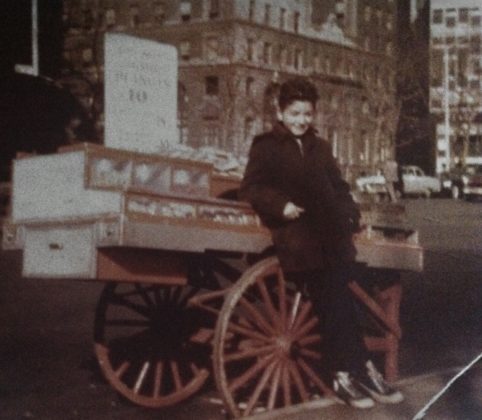
Elias as a young boy was at work with his father, out of a pushcart in Lower Manhattan, near the Customs House
Lou describes the world behind his door as a different world from the world outside. “I felt comfortable in both the wider American world and our home life. At home, our life was very insular. We were part of a subculture of people from Georgitsi who had immigrated back and forth to the United States. For us, a Xeno was not just a non-Greek, but someone from outside this network.” Outside the house, however, Lou quickly became a New Yorker, attending Brooklyn Tech— “one of the best high schools in the country at the time.”
Graduating high school in 1969, Lou went on to New York University (NYU), graduating with a Civil Engineering degree in 1973. When not at school, Lou was at the luncheonette, and he “sometimes held a couple of other jobs on the side.”
Recalling his first job interview, arranged through NYU, he met the construction manager in a high rise, who was chomping a sandwich, swearing at subcontractors, and talking about bringing in materials by helicopter. “What do you think?” the manager asked? “I like it,” Lou said, and never looked back. He also “never said no—to a new challenge or opportunity.”
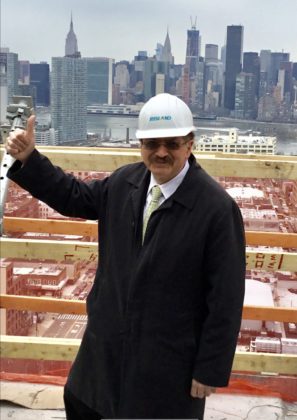
What has followed is nearly five decades of project experience in the New York real estate development, design, and construction management market. He is recognized as a leader in the field, working with major national New York construction management firms, like Tishman (now part of AECOM) where he was the Executvie Vice President/Chief Operating Officer. Since 1992, Lou has been president of his own firm, Jekmar Associates Inc., a construction/ development consulting firm to significant New York developers and owners. “I don’t advertise, most of my clients have a long-standing relationship with me and current work is usually repeat business.”
Jekmar Associates Inc. is currently involved in various residential, mixed use and hotel projects of over 3 million square feet. As Project Manager-Executive he has built over 15 million square feet of various high-rise building types, and Jenkmar has had corporate oversight of millions more. In addition to working with large developers he has interfaced with some of the world’s most renowned architects such as I. M. Pei and Santiago Calatrava.
Lou is also an active Member of the NYIFund which raises and lends foreign investment funds (over $500 million) to real estate developers for various projects currently being built in the New York area.
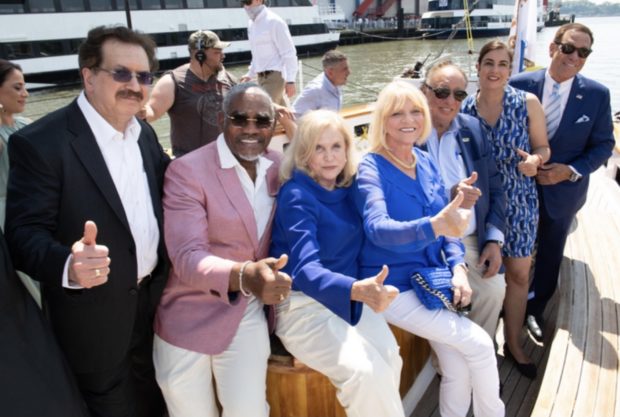
During the “Sail to Freedom”: from left, Lou Katsos, Congressman Gregory Meeks, Congresswoman Carolyn Maloney, Margo and John Catsimatidis, Congresswoman Nicole Malliotakis and 77WABC Talk Host Joe Piscopo
I often wonder where he finds the extra hours in the day to do all this—and to raise a family. Lou married in 1975 and graduated with a master’s degree in finance and business in 1984 from NYU. That same year, Lou began teaching as an adjunct professor at both NYU and Cooper Union until 2014. A note should be added about Lou’s family. He is a devoted husband, father, and grandfather. All the adult members of the Katsos family have either professional degrees and/or doctorates. This is a family that deeply values education—and educating. His wife, son and daughter have all taught at university.
Lou suggests that he was not particularly involved in Greek community and wider Hellenic issues until recently, though his involvement in his beloved New York’s civic and cultural affairs goes back decades. That started to change over the last five or so years, and Lou credits some of his students at NYU for getting him involved. “The American Hellenic Chamber of Commerce was conducting a business panel I was asked to chair,” he says, “and from there things just sort of took off.” Lou’s role in the business community and his executive role at the Greater Harlem Chamber of Commerce, among other community activities, made him a natural.
He drew on his decades of teaching, mentoring, and working with diverse people and ethnicities to create the East Mediterranean Business and Cultural Alliance (EMBCA) in 2015, sponsoring events, musical productions, and panel discussions on topics Hellenic yet inclusive and global. Lou’s last event at the American Hellenic Chamber of Commerce would be typical of subsequent EMBCA events. He commemorated the ten-year anniversary of the repose of Archbishop Iakovos and the fifty-year anniversary of the March on Selma, honoring the late prelate an American hero for Civil Rights beyond his spiritual role in the Greek Orthodox Church.
His themes have been as diverse as a night of music comparing Rebetika and Blues, drawing on his deep links with New York’s African American community, debating the legacy of Ali Pasha with Greeks, Turks, and Albanians, or honoring the role of Greek seamen in the Battle of the Atlantic. Culture, music, and business figure prominently, and Lou actively empowers academics, members of Congress, and artists to “do their own thing” at his events.
Lou is particularly interested when Hellenic issues can be contextualized to resonate beyond the Hellenic community—“We talk enough about ourselves to ourselves” he says, so regularly events sponsored by EMBCA will feature these broader themes. His decades in New York business and civic associations allow him to draw in local politicians, including members of Congress, as well as other ethnicities. An event about the Smyrna Catastrophe highlighted the humanitarian role of a Japanese freighter, and off Lou went to Japan to find out more about this event, drawing in Japanese academics and the Japanese consul in New York. In an event honoring Rhigas Pheraios, Lou invited the Serbian Orthodox Bishop Irinej and the Serbian consul, as the first martyr of Greek independence is also revered as a hero in Serbia.
While most EMBCA events are in New York (and now, in the COVID era, online), he took the EMBCA show on the road to Athens, honoring the Greek Shipping community on the Hellas Liberty, one of two surviving Liberty Ships, in Piraeus Harbor. The US Ambassador to Greece and dozens of Greek shipping magnates and naval personnel were in attendance.
Simultaneously, Lou became involved in other Greek American organizations and syllogoi, most notably the American Hellenic Educational Progressive Association (AHEPA), where he served as District 6 Governor and Chair of the Hellenic Cultural Commission. He would often “co-brand” events with AHEPA or other organizations. He also served as President of the American Hellenic Institute’s New York Chapter, as Executive Vice President of the Hellenic American Chamber of Commerce and hosted a program on Hellenic and community issues at COSMOS FM Hellenic Public Radio Program.

While EMBCA in-person events were always an evening to remember, the world changed in 2020 and went virtual. At the same time, a milestone anniversary was approaching: the Bicentennial of the start of the Greek War of Independence. The Hellenic Republic’s response was tepid, and there was a feeling that 2021 did not just belong to some official committee but to Hellenes (and Philhellenes) everywhere. Prodded by the Facebook posts of several friends, Lou decided to form the American Hellenic Revolution of 1821 Bicentennial Committee, a group which included two members of Congress and Co-Chairs of the Hellenic Caucus, Carolyn Maloney of New York and Gus Bilirakis of Florida.
Rarely a week has gone in the past year by where Lou has not curated an online panel about the Hellenic Revolution, and likely as not the wider resonance and significance of the Revolution on the wider world, particularly America, figures prominently. For Lou and his committee colleagues there is a sense that the Hellenic Revolution, like the American, is part of a global democratic and cultural commons, and it is, in a sense, a duty to build awareness about it.
Lou in coordination with the EMBCA American Hellenic Revolution of 1821 Committee, also recently participated in a live on-site presentation to the Plato Academy, part of a nine school [Hellenic] charter school system in Florida. It was a combination of an onsite presentation at the Seminole, Florida school which simultaneously live streamed to the other nine schools, including Tarpon Springs, Florida, where “Perhaps the Heart of Diaspora Hellenism” beats. Lou beamed in from New York City to set the tone with an introduction to the middle schoolers of diverse backgrounds: “The Greek Revolution of 1821 is YOUR History . . . because it is American History.”
The “Bicentennial Season,” if we are to call it that, culminated in a “Sail to Freedom” event in New York Harbor on June 6. He was one of many chefs preparing this particular feast. Several craft plied the waters of New York Harbor, Lou was in the lead craft, accompanied by several key Greek community leaders such as John Catsimatidis, Evangeline Plakas, and members of Congress Carolyn Maloney, Nicole Maliotakis, and Gregory Meeks. Lou has known them all for years and has been constant supporters of their campaigns. That same day, Lou was honored with “The Face of the Diaspora on the Bicentennial of the Hellenic Revolution Award,” an honor fully deserved for years of constant, passionate advocacy of Hellenic causes.
While he repeats the mantra cautioning us from “talking about ourselves—to ourselves,” Lou also believes that the time has come for the Greek Diaspora to talk to each other, rather than each Diaspora location talking to Greece. Here, as so often in our conversations, he draws on history. The Greek merchants and shipowners did not wait for the Hellenic government to get things done, they did it themselves, across countries and continents. “They were successful because they trusted each other, empowered each other, and went around obstructions.” Their story remains instructive to the present day.
Lou has never been a man to say no, or one not to take on extra responsibilities. It is part of his roots and heritage from his two beloved “villages”—Georgitsi and New York City. His record is clear that when he takes on a project, he completes it. He has spent much of the last 18 months honoring the Greek revolution and its relevance to the wider world. He will, no doubt, continue to help define and develop the Greek evolution—a Hellenism with deep roots, just like his own, but a Hellenism that embraces the wider community, including our fellow Americans.

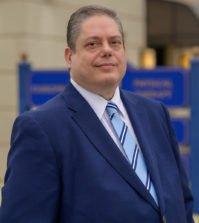
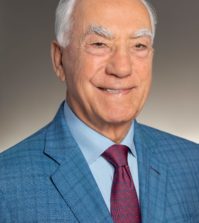
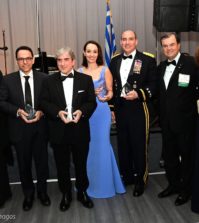
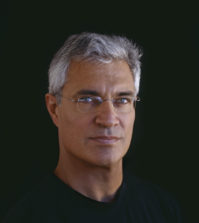










0 comments